There was no murder, claims Aussie mum imprisoned in Arizona accused of killing her stepdaughter
The ex-Adelaide mother facing the death penalty in Arizona over her stepdaughter’s murder has given her first detailed interview after a judge ordered her to face trial — despite errors from police investigating the case.
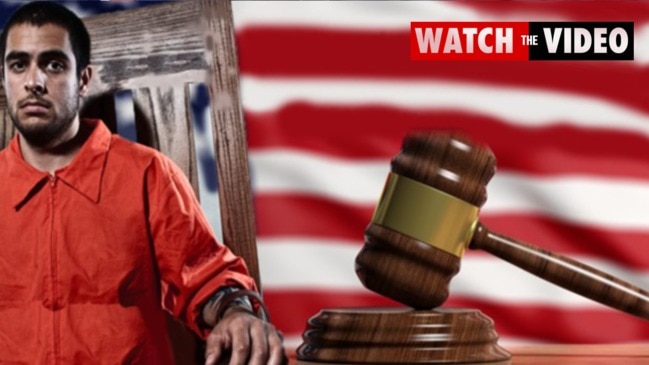
- Exclusive: Lisa Cunningham’s desperate letters home
- Arizona prosecution has ‘serious errors’, lawyers claim
- Cunningham tells her family she’s battling ‘crippling rage’
The ex-Adelaide mother facing the death penalty in Arizona over her stepdaughter’s murder has given her first detailed interview after a judge ordered her to face trial — despite errors from police investigating the case.
Prison guard Lisa Marie Cunningham, 43, could become the first Australian woman on death row if she is found guilty of killing mentally ill seven-year-old girl Sanaa in February last year.
But speaking publicly for the first time today, she says she and her husband are innocent of the first-degree murder alleged to have occurred in her adoptive Arizona hometown.
The Mannum-born mother of four claims she and her husband — former Phoenix robbery squad detective Germayne Cunningham, 39 — were good parents to his “dangerously schizophrenic” daughter.
Denying they abused or restrained her amid squalid conditions, they insisted she died from pneumonia — the effects of special prescribed medication.
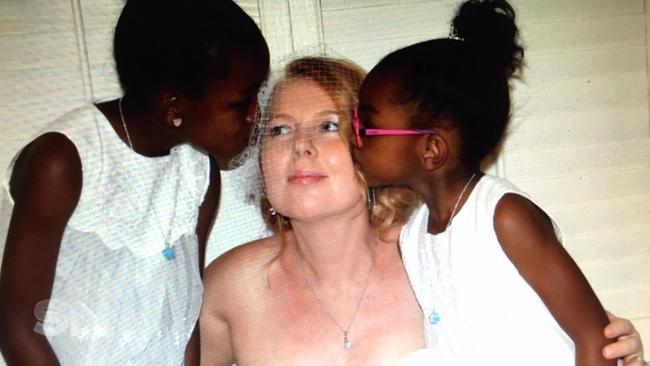
“It doesn’t feel real,” she tells Matt Doran of the Seven Network’s Sunday Night from the maximum-security, desert-based Estrella Women’s Jail, where she remains in solitary confinement outside Phoenix.
“It feels shocking. I’m gutted for my kids. I’m devastated for my family.
“You can’t keep having the conversation about this crime and not keep visiting the fact, there was no murder … there was no homicide. She died from pneumonia.”
Her South Australian-based family, and American lawyers, believe the married pair, who met at a local prison, are victims of a “travesty of justice”.
They claimed the child was dangerous, self-harmed, attacked their pet dog and heard “voices urging her to kill”.
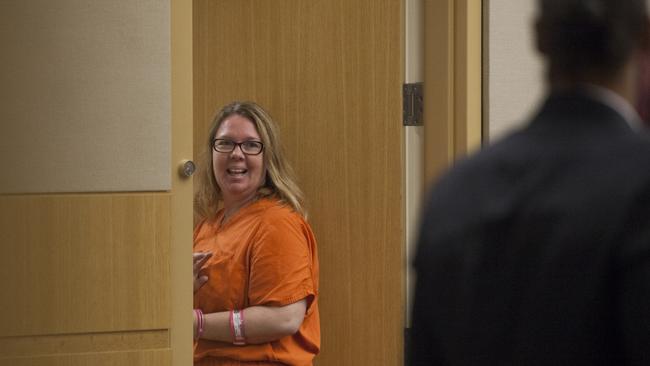
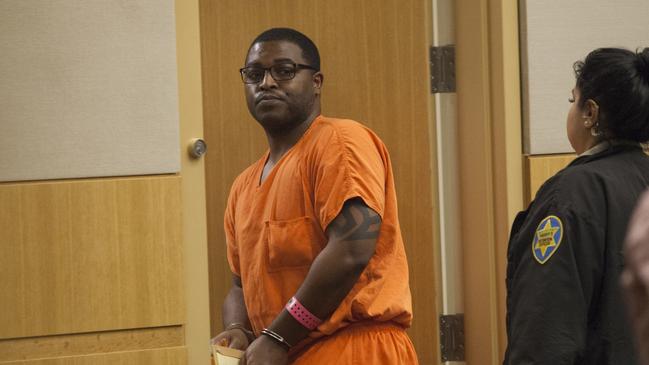
Sepsis was blamed for her death. Their children remain in state care.
Despite police blunders, Maricopa County Superior Court last week rejected the pair’s attempt to dismiss the landmark case.
They will remain in jail until their July 2020 trial.
Asked how “realistic” was the death penalty — which the Australian Government opposes — Mrs Cunningham replied: “You know, I think … I think it’s, I think it’s illogical, but do I think illogical things happen? Absolutely.”
In his November 8 ruling, Judge Michael Kemp refused to strike out their case despite finding prosecution flaws including a “time of death that was clearly off the mark”.
He found detectives got the child’s death wrong by three hours, which the couple argued “makes it appear (they) brought the victim to hospital less than an hour before her death”.
“In this case, the court does not find that any one error rises to the level of violating (the couple’s) due process rights,” his three-page judgment read.
Other evidence remains secret by court order.
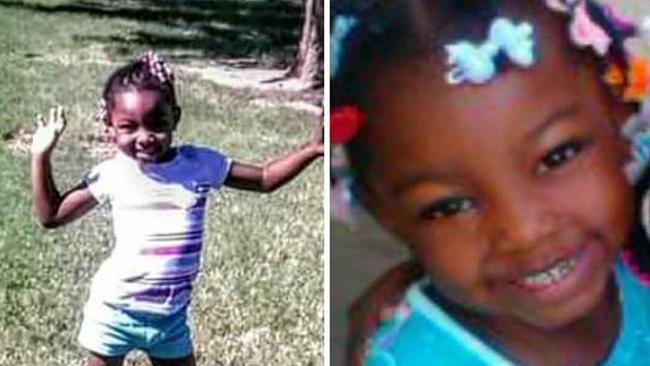
Her lawyer, Eric Kessler, who has tried 20 death penalty cases, told the program he had “never seen a worse travesty of justice”.
“Lisa is not a criminal,” he said. “She’s a loving mum. Australians should be horrified.”
The case returns to court next month.
* Watch Sunday Night at 8.15pm tonight on Channel 7
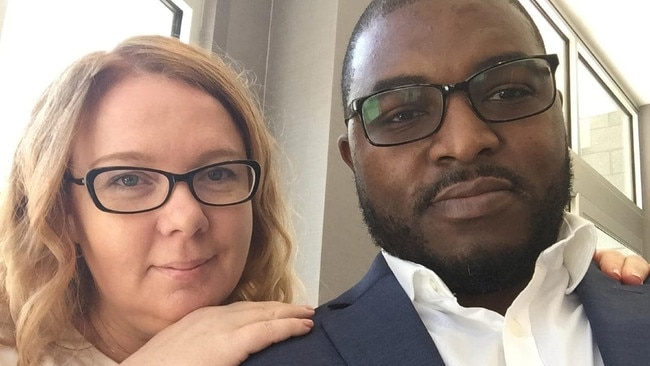
Interviewing a mum accused of a monstrous crime
By Matt Doran
Inside Arizona’s toughest women’s jail, Australian mum Lisa Cunningham is being treated as one of the state’s most dangerous felons. She’s in solitary confinement 23 hours a day, denied all contact with her children. Unless she can somehow convince the courts she’s innocent, and by extension that Phoenix prosecutors are responsible for a grievous miscarriage of justice, she could become the first Australian woman in US history to be executed.
“It doesn’t feel real,” Lisa, 43, tells me from the maximum-security wing of Estrella Women’s Jail, a desert compound just outside Phoenix. “It feels shocking. I’m gutted for my kids. I’m devastated for my family.”
This is the first time Lisa’s spoken publicly since she and her husband, Germayne, a former detective, were arrested in September and charged with first degree murder. Prosecutors allege they are responsible for the cruel neglect and abuse of Germayne’s daughter — Lisa’s stepdaughter — seven-year-old Sanaa.
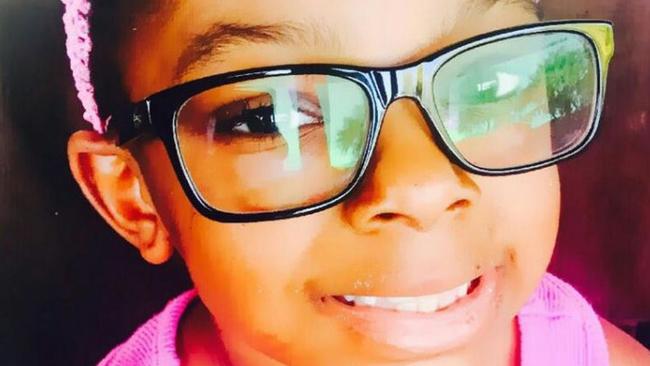
The prosecution facts make for tough reading. They say the little girl was placed in a straitjacket, restrained with zip ties and handcuffs, neglected to the point where serious wounds, including a bone-deep cut on her foot, were not properly treated.
Lisa’s defence? Sanaa was dangerously schizophrenic, she was never zip tied and most importantly, there was never any crime. “You can’t keep having the conversation about this crime and not keep visiting the fact, there was no murder,” Lisa tells me. “There was no murder, there was no homicide. She died from pneumonia.”
This is one of those rare cases that has already divided a nation. Lisa Cunningham is either a deceptive monster, or an innocent, loving Adelaide mum facing death by lethal injection in a US state hungry for executions. Her lawyer, Eric Kessler, has tried 20 death penalty cases and says he’s never seen a worse travesty of justice in his career: “Lisa is not a criminal. She’s a loving mum. Australians should be horrified.”
But as you’ll see in this major Sunday Night investigation, this is no simple case.
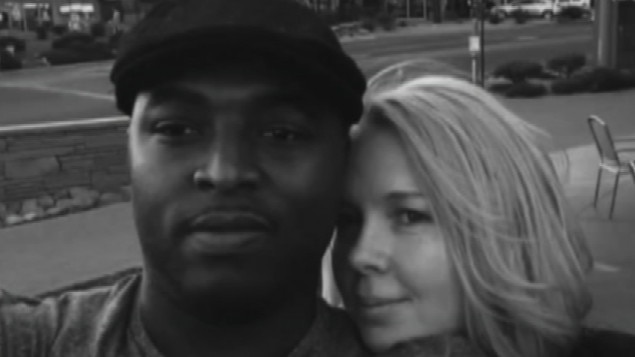
THE ACCUSED
Lisa Cunningham grew up in working-class Murray Bridge, east of Adelaide.
Her parents, who battled alcoholism, separated when she was 12. An older brother died of a drug overdose and Lisa became a carer in effect for her little sister Katie, who had Down syndrome. Lisa was forced to grow up fast. When she was 24 she met and married a visiting American airman. They moved to Arizona with their daughter, Cierra, and son, Javien.
When the marriage ended, Lisa went to work in an Arizona prison. She met police detective Germayne Cunningham and fell in love. Germayne brought two children of his own into the new relationship, Naraya and her younger sister, Sanaa.
Cierra has put her life on hold to campaign for her mother’s release. As a potential witness, she’s banned from visiting her mother in prison and prohibited from communicating with her at all. With her parents now behind bars, her siblings have also been taken from her, placed into Arizona’s foster care system. She says Phoenix prosecutors have obliterated what was the “perfect family”. The children have been split up and do not see each other. Cierra is trying, despite her youth, to apply to adopt them. She fears the separation of the close younger siblings is traumatic.
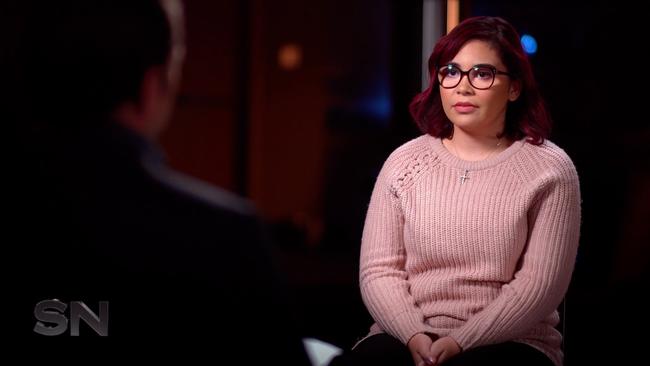
THE VICTIM
Sanaa Cunningham was a very sick little girl. At the age of six she was diagnosed with acute schizophrenia. Lisa says she and Germayne watched a happy, healthy, normal little girl slowly slip away. They say Sanaa began injuring herself, scratching at her skin, gouging at her eyes. Even hearing voices urging her to kill.
Eric Kessler, Lisa’s lawyer, tells me Sanaa would defecate throughout the house and smear it. She would spin on her knees in circles, tearing the skin off her knees and legs. She once tried to harm the family dog.
Lisa and Germayne decided to pull the little girl out of her Phoenix school, to homeschool her. But Sanaa’s condition continues to deteriorate. Eventually they visit a psychologist who prescribes Sanaa a powerful, adult antipsychotic, called Risperdal — known to have side-effects like pneumonia, and worse.
But as Sanaa’s health went from bad to worse, there were suspicions in the neighbourhood about whether Lisa and Germayne were really the loving parents they claimed to be.
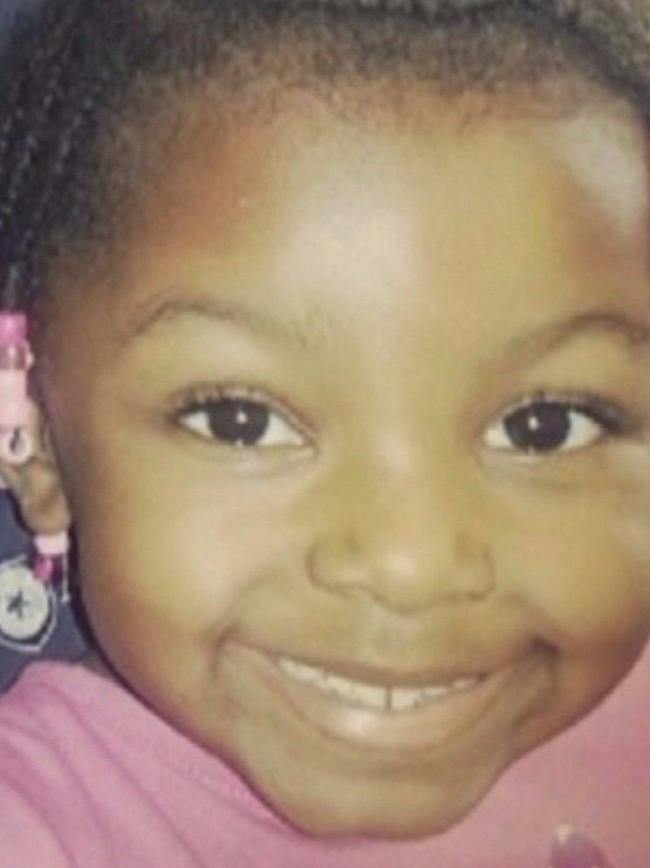
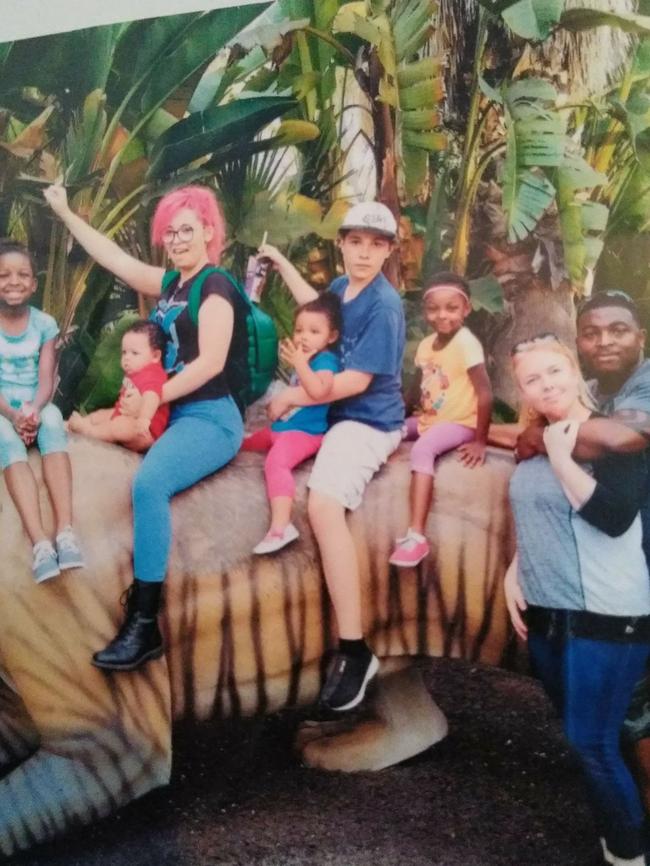
THE CRIME
On Friday 10 February, 2017, Lisa Cunningham found Sanaa limp against her playpen inside her home in suburban Phoenix. She couldn’t open her eyes. She drooled. They called Sanaa’s doctor — the same doctor who had prescribed a powerful adult antipsychotic. Staff advised Sanaa’s parents to monitor her, and bring her in on Monday. The next day, Sanaa became catatonic. Her body was cold to the touch. Lisa Cunningham couldn’t get a reading from the thermometer, so she surrounded her stepdaughter with warm bottles of water.
Lisa rushed Sanaa to urgent care, about 1am, then to hospital. Hours later, around 5.30am on Sunday February 12, she died.
At first, there was nothing suspicious. An autopsy found the little girl had dozens of scratches and injuries from her feet, to her head, but the Cunninghams said these were self-inflicted and a result of the schizophrenia. The coroner found the likely cause of death to be sepsis — a blood infection — and pneumonia (a side effect of Risperdal). But acting on a number of complaints, police would eventually take a closer look at what life was like inside the Cunningham family home. And they would ask three key questions: was Sanaa being neglected, was she receiving the best possible care, and did her parents act quickly enough when they realised she was gravely ill.
The prosecution facts, obtained by Sunday Night, allege that Sanaa effectively lived in a house of horrors for two years before she died. The details of that alleged abuse will be revealed on our program tonight, along with some startling allegations from neighbours. And as you’ll see, I ask Lisa some particularly uncomfortable questions. Was this little girl becoming too much of a financial and emotion burden? Is it possible Lisa and Germayne made the decision that it may just be easier to let her go?
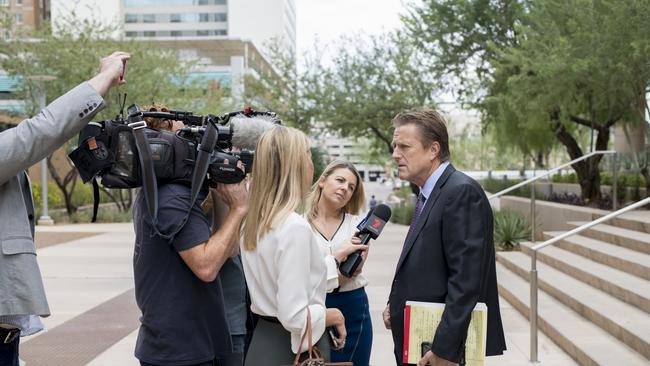
THE EXECUTION
Arizona prosecutors have asked for the death penalty for both Lisa and Germayne Cunningham. It’s rare for them to push for capital punishment unless they think it’s a realistic chance of a conviction being achieved.
If Arizona gets its way, Lisa Cunningham would become the first Australian woman in US history to be put to death. I visited the desert outpost where the execution would be carried out, Florence State Prison, in a place colloquially known as “Death Town”. There have been 14 executions by lethal injection at Florence since 2010. One hundred and twenty-three inmates are right now eking out their final days on death row, awaiting their last meal. Only three of them are women.
Sunday Night was granted extremely rare access inside the prison, escorted through the gates to the compound known as Housing Unit 9, or the death chamber.
The last execution carried out in Arizona was four years ago. To describe the process as botched would be a gross understatement. The prisoner — a murderer named Joseph Wood — took almost two hours to die. It should have taken 10 minutes. It should have been one injection — instead it was 15. People in the viewing gallery described hearing him gasping and snorting for air.
Maricopa County Attorney Bill Montgomery is unrepentant. When I ask him whether the death penalty system in his state is broken, he even floats a possible return to the firing squad.
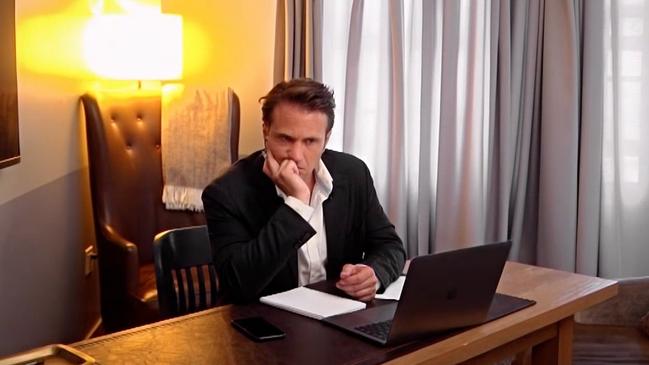
THE VERDICT
There is not enough available public evidence to say for sure exactly how or why seven-year-old Sanaa Cunningham died. The prosecution is hinting at damning text messages between Lisa and Germayne. The defence dismisses these rumours, seriously questioning the validity of the messages and describing this as a monumentally flawed investigation, underpinned by a stunning police failure to properly tell the courts Sanaa’s time of death.
What is certain, is that someone failed Sanaa. In the inevitable blame game that is soon to be thrashed out in court, that sad fact must never be forgotten. There are so many unanswered questions. How, in 2018, does a child die from a preventable blood infection and pneumonia? Why was Sanaa prescribed a powerful adult antipsychotic in the first place, and was she properly evaluated? Lisa’s lawyers say the prescribing doctor didn’t evaluate her at all. If true, that doctor should not only be struck off the registry, but possibly charged himself.
Did the medical community do enough for a child with acute schizophrenia? Did Lisa and Germayne do enough? If Sanaa was as sick as is claimed, why wasn’t she relinquished to the care of an institution, to people properly trained to treat her? Why did authorities take so long to lay charges? Was this a case of preferential treatment for Germayne, a former Phoenix cop? Is this a case of police, prosecutors and child services trying to cover up their own failures? Supporters of the Cunninghams say the state’s murder theory is a house of cards that will rapidly collapse in court. Opponents insist Sanaa’s parents are exactly where they belong, and should pay the ultimate price.
“How realistic do you think the prospect of the death penalty is?” I ask Lisa.
Her reply: “You know, I think... I think it’s, I think it’s illogical, but do I think illogical things happen? Absolutely.”
* Matt Doran’s investigation and exclusive interview with Lisa Cunningham airs on Sunday Night at 8.15pm on Seven.
